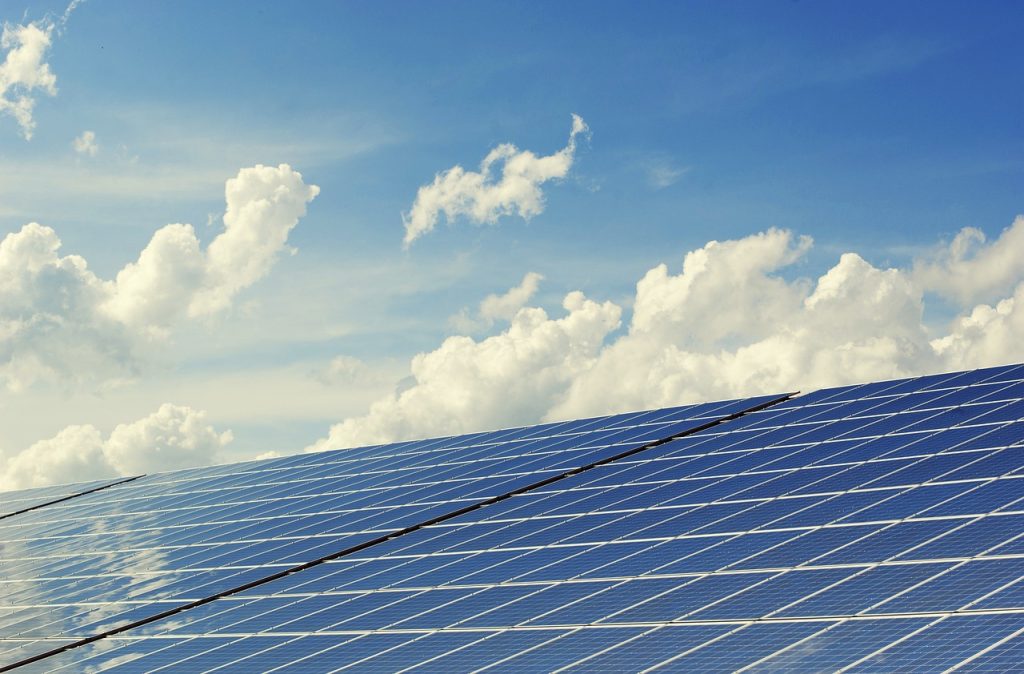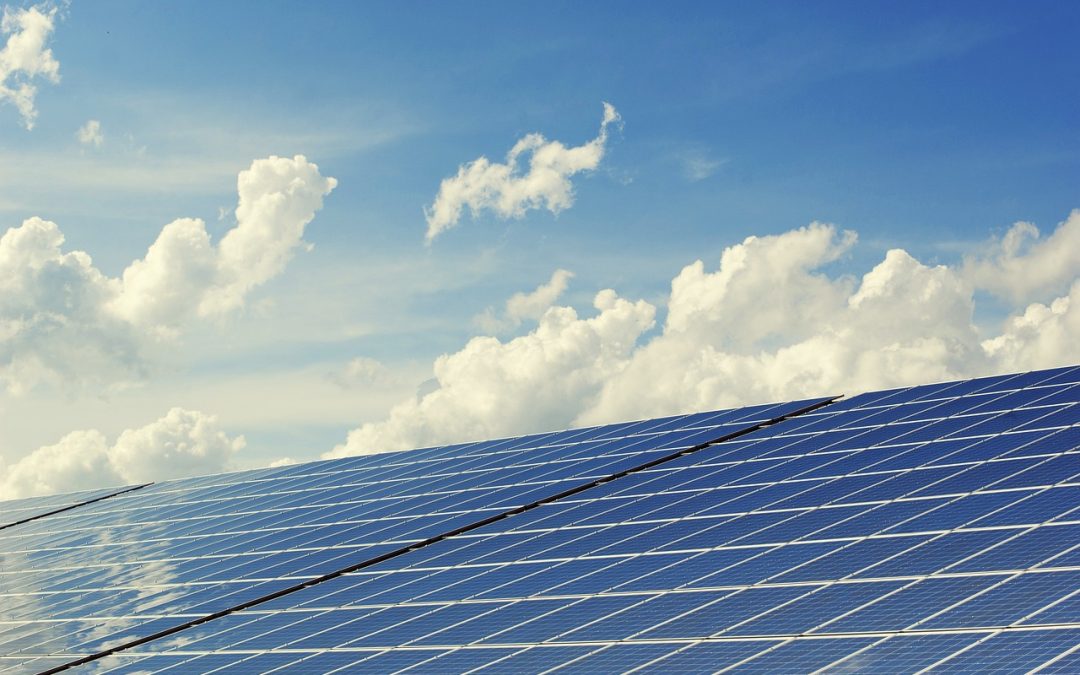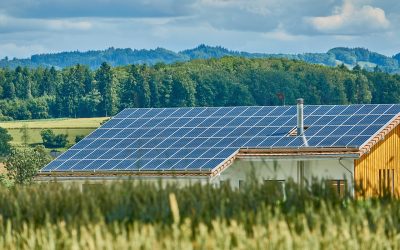Picture this: a world where communities are no longer at the mercy of power outages, where energy security is no longer a distant dream. In an era where the demand for reliable and sustainable energy sources is growing exponentially, the concept of enhanced energy security for communities holds immense potential. By focusing on innovative solutions and empowering localities, we can pave the way for a brighter, more resilient future. In this article, we will explore the importance of energy security for communities and the strategies that can ensure a steady and uninterrupted power supply for everyone.
1. Importance of Energy Security
Energy security is of utmost importance for communities to thrive and prosper. Without a reliable and secure energy supply, our daily lives and critical infrastructure would be disrupted, leading to significant economic and social consequences.
1.1 Dependence on Energy Sources
Communities rely on various energy sources to power their homes, businesses, and industries. These sources include fossil fuels, such as coal, oil, and natural gas, as well as renewable energy options like solar, wind, and hydroelectric power. However, dependence on a single energy source can pose risks and vulnerabilities.
1.2 Vulnerabilities and Risks
Relying heavily on a single energy source exposes communities to vulnerabilities and risks. For instance, geopolitical tensions or natural disasters can disrupt the supply of fossil fuels, causing shortages and price spikes. Additionally, reliance on fossil fuels contributes to climate change, which presents its own set of risks, including extreme weather events and rising sea levels.
1.3 Impact on Community Resilience
Energy security is closely tied to community resilience. When communities have a robust and diverse energy infrastructure, they are better equipped to withstand and recover from emergencies or disruptions. By enhancing energy security, communities can ensure the availability of power for critical services, such as hospitals, emergency response systems, and communication networks.
2. Challenges in Achieving Energy Security
While energy security is crucial, there are several challenges that communities face in achieving it.
2.1 Limited Energy Infrastructure
Many communities lack the necessary energy infrastructure to support reliable and secure power supply. This can be due to geographic constraints, lack of financing, or inadequate planning. Limited infrastructure can lead to energy shortages and inefficient energy use, negatively impacting community development and resilience.
2.2 Insufficient Emergency Response Plans
Communities often face challenges in developing effective emergency response plans for energy-related crises. Without proper planning and coordination, responding to power disruptions or fuel shortages becomes challenging, further exacerbating the impact on essential services and the community as a whole.
2.3 Economic and Financial Constraints
Financial constraints pose a significant challenge in achieving energy security. Upgrading or diversifying energy infrastructure can require substantial investments, which some communities may struggle to afford. Additionally, limited financial resources may hamper the implementation of energy efficiency measures and the adoption of clean and renewable energy sources.

3. Diversification of Energy Sources
To enhance energy security, communities should focus on diversifying their energy sources. This involves promoting renewable energy, exploring alternative fuel options, and developing local energy generation.
3.1 Promoting Renewable Energy
Renewable energy sources, such as solar, wind, and hydroelectric power, offer a sustainable and reliable alternative to fossil fuels. Communities can encourage the adoption of renewable energy technologies by providing incentives, streamlining the permitting process, and investing in renewable energy infrastructure. By relying more on renewables, communities reduce their dependence on fossil fuels and increase their energy security.
3.2 Exploring Alternative Fuel Options
In addition to renewable energy, communities can explore alternative fuel options to diversify their energy sources. These alternatives include biofuels, hydrogen, and natural gas. By investing in the infrastructure necessary for these fuels, communities can reduce their reliance on traditional fossil fuels and improve their energy security.
3.3 Developing Local Energy Generation
Developing local energy generation capabilities can significantly enhance energy security for communities. By generating power locally through microgrids, communities can reduce their vulnerability to disruptions in the main power grid. Local generation, especially from renewable sources, can provide a reliable and decentralized energy supply, ensuring the availability of power even during emergencies or blackouts.
4. Smart Grid Systems and Technologies
Implementing smart grid systems and technologies can play a crucial role in enhancing energy security for communities.
4.1 Introduction to Smart Grids
A smart grid is an advanced electricity distribution system that uses sensors, communication networks, and digital technology to monitor and control the flow of electricity. It enables two-way communication between power suppliers and consumers, facilitating better management, efficiency, and reliability of the electricity grid.
4.2 Benefits of Smart Grid Implementation
Implementing smart grid technologies offers several benefits for energy security. These include improved outage management, reduced electricity theft, efficient demand response programs, and increased integration of distributed energy resources. Smart grids also enable real-time monitoring and control of the system, allowing for quick detection and mitigation of potential disruptions.
4.3 Increased Reliability and Resilience
Smart grid systems increase the reliability and resilience of the electricity grid by enabling rapid detection and isolation of faults. Through advanced sensing and control mechanisms, smart grids can automatically reroute power and restore services in case of outages or disruptions. This enhances the community’s ability to withstand and recover from emergencies, bolstering energy security.

5. Energy Efficiency Measures
Energy efficiency plays a significant role in achieving energy security by reducing the overall energy demand. By implementing energy-efficient technologies and practices, communities can optimize their energy use, decrease reliance on external energy sources, and increase their resilience to disruptions.
5.1 Importance of Energy Efficiency
Energy efficiency is vital for several reasons. It helps lower energy costs, reduce greenhouse gas emissions, and conserve natural resources. From an energy security perspective, energy efficiency reduces the strain on the energy infrastructure and lessens the risk of capacity overload, ensuring a more reliable and resilient energy supply.
5.2 Building Retrofit Programs
Communities can promote energy efficiency by implementing building retrofit programs. These programs involve upgrading the energy performance of existing buildings through insulation, efficient lighting systems, and energy management systems. Building retrofits not only enhance energy security but also provide economic benefits by lowering utility bills and creating jobs in the construction industry.
5.3 Energy Conservation Initiatives
Energy conservation initiatives encourage individuals and businesses to adopt energy-saving behaviors. These may include raising awareness about energy-efficient practices, promoting energy audits, and incentivizing the purchase of energy-efficient appliances. By conserving energy, communities can reduce their dependence on external energy sources and enhance their overall energy security.
6. Enhancing Community Awareness and Education
Promoting energy literacy and educating communities about energy conservation and sustainable behaviors is vital for achieving enhanced energy security.
6.1 Promoting Energy Literacy
Energy literacy involves educating individuals about the sources of energy, how it is generated and consumed, and the impacts of energy use on the environment and community. By promoting energy literacy, communities can empower individuals to make informed decisions about their energy use, ultimately contributing to enhanced energy security.
6.2 Educating on Energy Conservation
Education on energy conservation practices is crucial in encouraging behavior change among community members. Providing information on simple energy-saving actions, such as turning off lights when not in use or using energy-efficient appliances, can contribute to a culture of energy conservation. This, in turn, reduces energy demand and increases energy security.
6.3 Fostering Sustainable Behaviors
Beyond energy conservation, communities should foster sustainable behaviors that go beyond individual actions. This can be done through initiatives such as promoting public transportation, encouraging bike-sharing programs, and supporting local food production. By adopting sustainable lifestyles, communities reduce their overall energy demand and enhance their resilience to energy disruptions.

7. Collaborative Partnerships and Policies
Collaboration between governments, communities, and the private sector is crucial for achieving enhanced energy security.
7.1 Government and Community Engagement
Governments play a significant role in fostering energy security by implementing supportive policies, regulations, and incentives. Additionally, community engagement is essential to ensure that energy security plans align with the specific needs and characteristics of each community. Collaborative efforts between governments and communities can lead to more effective energy security strategies.
7.2 Public-Private Cooperation
Public-private cooperation is vital for funding, developing, and implementing energy security initiatives. By leveraging the expertise and resources of the private sector, governments and communities can accelerate the transition to a more secure and sustainable energy future. Public-private partnerships can drive innovation, attract investment, and ensure the implementation of energy security projects.
7.3 Implementation of Supportive Policies
Governments should enact supportive policies that incentivize and facilitate the adoption of energy security measures. These policies may include feed-in tariffs for renewable energy, tax credits for energy-efficient upgrades, or regulations mandating the use of clean technologies. By implementing such policies, governments can create an enabling environment for communities to enhance their energy security.
8. Preparing for Emergency Events
To enhance energy security, communities must be prepared for emergency events that may disrupt the energy supply.
8.1 Developing Resilience Plans
Developing resilience plans involves assessing the risks and vulnerabilities specific to each community and developing strategies to mitigate and respond to energy-related emergencies. Resilience plans should include strategies for backup power, coordination with emergency response agencies, and communication protocols to ensure a swift and effective response to disruptions.
8.2 Ensuring Backup Power Sources
Communities should prioritize the installation of backup power sources to ensure the provision of essential services during power outages. These backup sources can include batteries, diesel generators, or renewable energy systems coupled with energy storage. By having adequate backup power capacity, communities can maintain critical operations and essential services during emergency events.
8.3 Establishing Emergency Response Networks
Effective emergency response networks are key to ensuring timely and coordinated action during energy-related emergencies. Communities should establish networks that include representatives from various stakeholders, including government agencies, utility companies, and community organizations. These networks should have clear protocols and communication channels to facilitate prompt response and recovery.
9. Resilient Infrastructure Development
Evaluating and strengthening the existing energy infrastructure is essential for enhanced energy security.
9.1 Evaluating and Strengthening Grids
Communities should evaluate the resilience of their energy grids and take measures to strengthen them. This may involve upgrading transmission and distribution systems, improving the monitoring and early warning capabilities, and hardening infrastructure against natural and cyber threats. Strengthening energy grids increases their reliability and ability to withstand and recover from disruptions.
9.2 Building Microgrids
Microgrids are localized energy systems that can operate independently or in conjunction with the main power grid. Building microgrids within communities provides a decentralized and resilient energy supply. During emergencies, microgrids can continue to provide power to critical facilities and essential services, reducing the impact of disruptions on the community.
9.3 Integrating Energy Storage Systems
Energy storage plays a vital role in enhancing energy security by enabling the storage of excess energy during times of low demand and making it available during high demand or emergencies. Integrating energy storage systems, such as batteries, into the energy infrastructure allows for a more flexible and reliable power supply, reducing the community’s reliance on external energy sources.
10. Case Studies and Success Stories
Examining case studies and success stories can provide valuable insights into implementing strategies for enhanced energy security in communities.
10.1 Community X: Achieving Energy Security through Local Solar Farm
Community X implemented a local solar farm, which now provides a significant portion of its energy needs. By diversifying their energy sources and reducing reliance on the main power grid, Community X has enhanced its energy security. The solar farm not only ensures a stable and sustainable energy supply but also generates economic benefits through job creation and reduced energy costs for community members.
10.2 City Y: Implementing Smart Grid for Increased Reliability
City Y invested in the implementation of a smart grid system, resulting in increased reliability and resilience of its electricity grid. The smart grid enables real-time monitoring and control, facilitating quick identification and response to grid disruptions. As a result, City Y experiences fewer power outages and quicker power restoration, enhancing energy security and improving the quality of life for its residents.
10.3 Town Z: Partnership Between Government and Private Sector for Resilient Infrastructure
Town Z formed a partnership between the local government and private sector companies to develop a resilient energy infrastructure. Through this collaboration, the town implemented measures to evaluate and strengthen its energy grid, including upgrading transmission lines and improving monitoring capabilities. The partnership also enabled the installation of backup power sources, ensuring the provision of essential services during emergencies and enhancing energy security for the entire town.
In conclusion, enhancing energy security is essential for communities to thrive and withstand disruptions. By diversifying energy sources, implementing smart grid technologies, promoting energy efficiency, and fostering collaboration between stakeholders, communities can achieve a more reliable and resilient energy supply. Through careful planning and implementation of strategies, communities can ensure the availability of power, increase their resilience to emergencies, and create a sustainable energy future.










